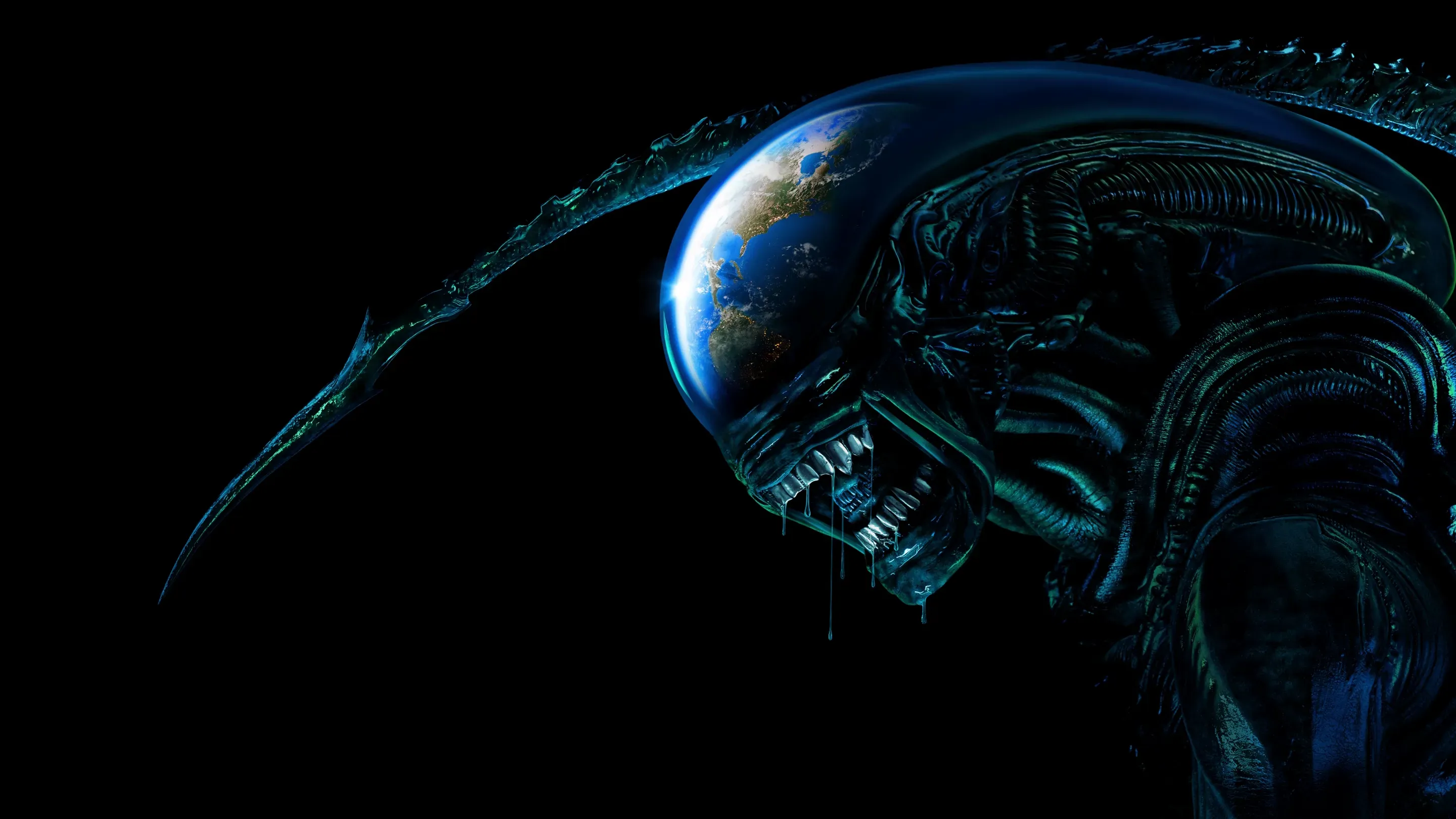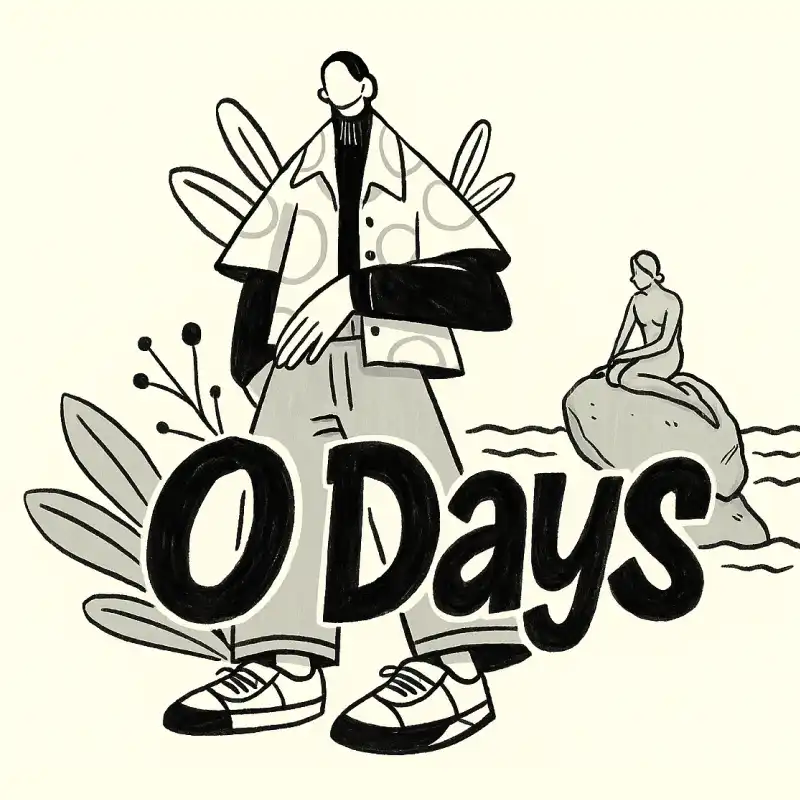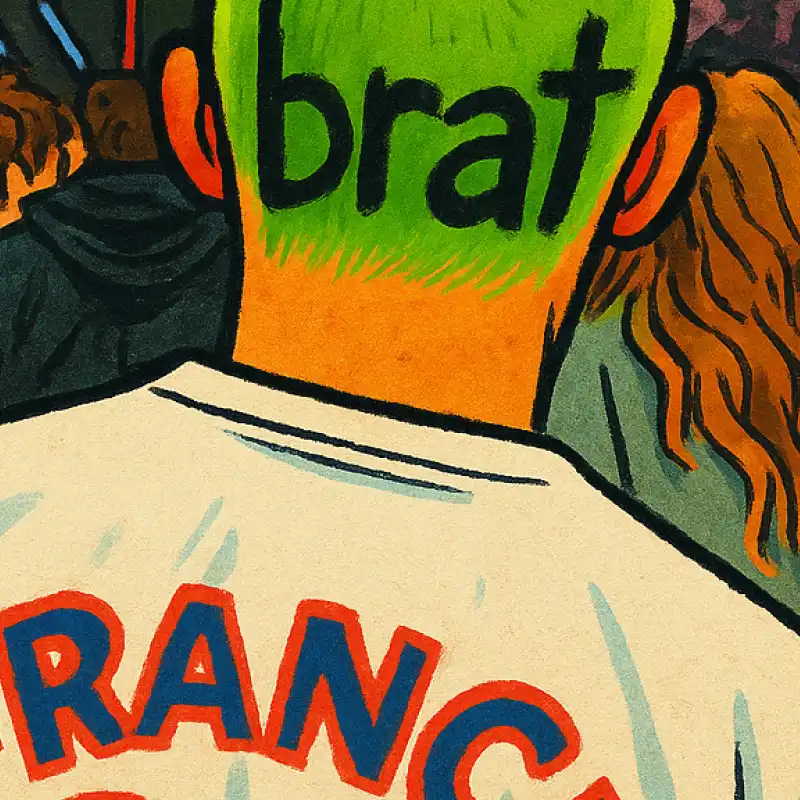Season 7 of Black Mirror features six new episodes that balance between technological satire, sci-fi experimentation and meta-commentary. Unfortunately, the outcome is uneven, and the series' ability to mirror reality is weakened as the ideas drift from both relevance and resonance.
One star
Two stars
Three stars
Four stars
Five stars
Disclaimer: Apropos Magazine received access or a review copy. As always, we share our own impressions — unfiltered.
Six stars
Section 1. Common People
If you've ever lost track of your streaming subscriptions, wait until you have to pay for school, food and oxygen -- in “Basic,” “Plus” or “Ultimate” packages. Common People is Black Mirror when it bites itself firmly and refuses to let go. A future that feels all too close, hitting straight into today's tech and capitalism critiques with a mix of dry satire and pure desperation.
Chris O'Dowd delivers a downbeat but clutching performance as the man just trying to stay afloat in a society built up like a cellphone subscription. The episode keeps pace, tone and believability in perfect balance -- and you're left with that classic Black Mirror feeling of “this might not be fiction for much longer.” Definitely the strongest of the season. And scariest.
Section 2. Bete Noire
It starts as an intense, psychological game between two women: Maria, a food scientist, and Verity, an old schoolmate who suddenly appears as a new colleague. There's something simmering uncomfortable about the mood -- in the good way. Think Single White Female sittings Black Mirror, added miso and corporate labs.
But then... yeah, then the episode completely loses its grip at the end. And as if one ending wasn't confusing enough, there are two -- as if the episode itself had doubts about what level of “far-fetched” it would land at. What began as a sharp psychological thriller ends in a kind of involuntary Twin Peaks-light with AI and ghost logic. A paragraph that would like to say something big, but most of all mumbles it all away in nebulous symbolism and weird pacing.
Section 3. Reverie Hotels
Think Weekend at Bernie's, but with Oscar winners and deepfake technology. IN Reverie Hotels is a film company trying to revive old stars with AI and create new movies -- and who has? not missed more monologues from digitized corpses? The premise is frighteningly topical and could have been a razor-sharp commentary on the Hollywood cannibalism of the time. But it all stumbles quickly.
The problem is the lead role -- a character so implausible and clumsy that you halfway start cheering for the algorithm instead. Her interaction with the departed cast is so awkward you get flashbacks to cringey amateur theatrics. It all ends up as an ironic metacritic on AI-generated movies, just without the implication that it was meant to be. An idea with potential, smothered in flat lines and emotional vacuum.
Section 4. Plaything
A Spiritual Successor to Bandersnatch with a heavy sprinkle of LSD and 90s nostalgia. We follow Cameron, a former gaming journalist who falls down the rabbit hole via the computer game Thronglets — a glitchy universe populated by AI beings with consciousness. It starts off strong, playful and promising, with just the right amount of digital paranoia. Preserved, the writer here then gets flashbacks to a time of floppy drives, CD-ROMs and pixelated graphics, but then the section keeps in mind that it also has to be “deep”. And this is where it begins to hover -- literally and figuratively -- away from any kind of grounding. It gets meta in the way where you start missing a pause button to the paragraph itself. Brooker goes all-in on explosions of ideas, but forgets to anchor them in something we can mirror ourselves in; the result? An acid trip version of Black Mirror that fascinates -- but doesn't seriously strike.
Section 5. Eulogy
A sci-fi dream that could have been taken straight out of Blade Runner 2049 and Here Without the actual action, of course. We follow Phillip, a man who is contacted by a tech company to recreate the memories of his deceased ex-girlfriend via AI. Because surely what's better than reliving your old relationships through technological magic when you can't have a proper conversation in real life?
Visually, it's a delight to the eye -- neon, soaring technology, and a vibe that makes you think you're on a futuristic vacation. But the pace? It's so slow that you almost have time to consider writing your own obituary. Luckily they've got Paul Giamatti on board and he plays Phillip so well that you almost forget that not very much happens. His mix of cynicism and vulnerability gives the episode the depth that would otherwise have been completely absent. Without him? A beautiful, but completely empty shell.
6th. USS Callister: Redemption
A joyous revisit to Black Mirror's most colorful universe — this time with new characters, new conflict and more CGI effects than ever before. It's nice, entertaining and interspersed with references to both Star Trek, the gaming industry and itself.
But basically it's popcorn with tinsel: crisp, colorful and quickly forgotten. Where the original had a sharp society commentary on power, gender and escapism, works Redemption mostly like fan service with budget. And that's okay, as long as you don't expect it to mean anything important. Because it doesn't. It just wants to be fun. Fortunately, it is some of the time.

And so what?
Season 7 has its moments -- and *Common People* in particular proves that Black Mirror can still hit hard and accurately. But the rest of the season struggles to find the balance between innovation and relevance. When the series loses its connection with reality, it also loses some of its impact.
Section | Rating
Common People | ★★★★★☆
Bete Noire | ★★★☆☆☆
Hotel Reverie | ★★☆☆☆☆
Plaything | ★★★☆☆☆
Eulogy | ★★★☆☆☆ (+1 for Giamatti)
USS Callister: Redemption | ★★★☆☆☆
All in all, it should give you a total of three stars.















